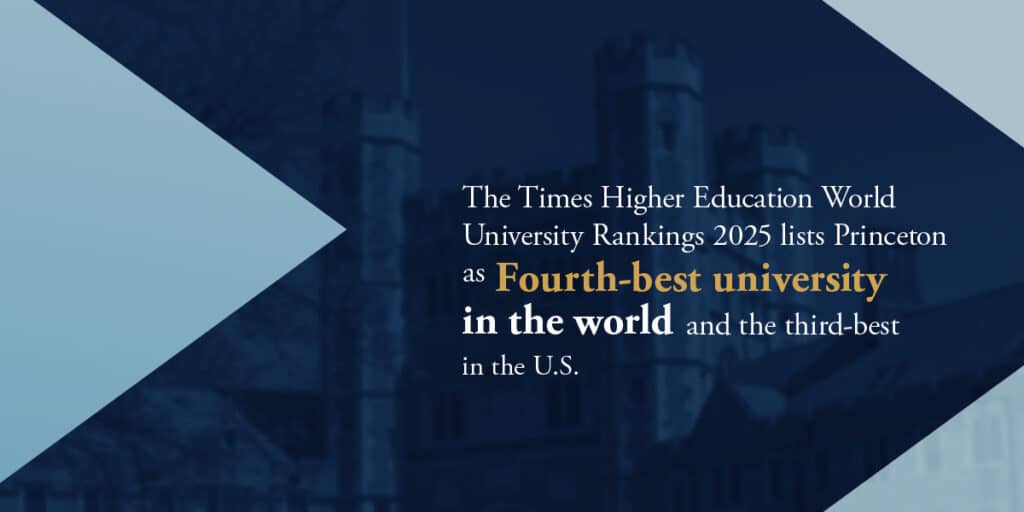Rival Ivy League schools Yale and Princeton are among the top universities in the world. These historic institutions are renowned for their academic excellence, extracurricular achievements, and iconic student experiences. They also have at least one more thing in common — sky-high admission standards. For the class of 2028, both schools accepted less than 5% of applicants.
Whether a student should choose Yale or Princeton depends on their circumstances and goals, as each offers distinct advantages. The more students know about these prestigious schools, the more likely they will make the right choice.
Yale vs Princeton Pros and Cons
Founded in 1701, Yale is a mid-sized (6,600 undergrads) private research institution located in the city of New Haven, CT. Yale sees itself as an institution with incredible resources and wants its students to take advantage of them in thoughtful and creative ways. As they state on their application page: “Two questions guide our admissions team: ‘Who is likely to make the most of Yale’s resources?’ and ‘Who will contribute most significantly to the Yale community?’”
Above all else, Yale prides itself on its collaborative community. Yale is home to 14 residential colleges, where students will spend their first two years (and many of them all four years). The residential colleges are not simply dorms. They are very tight-knit, “family-esque” communities. Students are also advised within the residential colleges until they declare a major. All students live suite-style within the colleges.
Admissions committee discussions often center around whether a student will be a good roommate, suitemate, and residential college member. Will they get excited about cookouts in the courtyard or the first-year snowball fight? Will they attend college teas with visiting guests such as Anderson Cooper, Jodi Picoult, George Takai, or David Duchovny?
Keep reading to see Yale’s strengths and weaknesses compared to Princeton’s.

Ranking and Prestige
As America’s third-oldest university, Yale has an impressive reputation. It currently ranks #5 on the “Best Colleges by U.S. News & World Report” ranking. 97% of students admitted to Yale were in the Top 10% of their high school ranking, reflecting high academic standards. The Times Higher Education World University Rankings 2025 lists Yale as the 10th-best university in the world. While this reflects positively on Yale’s reputation, the ranking could also be a slight con compared to Princeton, which ranks higher at fourth in the world.
Yale also has a “test flexible” policy, meaning that applicants must submit some kind of standardized test, but they are open to taking multiple different kinds of testing. For most students, this will just be the SAT or ACT, but Yale accepts all of the following:
- SAT, ACT, IB or AP tests. (if you choose IB or AP, Yale will expect you to send ALL the IB or AP tests that you took).
Strong Subjects
A very important part of a Yale education is the university’s immense interdisciplinary focus. Yale’s academic approach is one that truly emphasizes studying multiple different areas or combining subjects. Of its 80+ majors, over 1/3 of them are “interdisciplinary majors.” This refers to majors made up of two or more subject areas combined into one major. Examples include Physics & Philosophy, Computing & the Arts, Statistics & Data Science, and more. Students who may be the best fit for Yale are those whose interests span across multiple academic areas.
Yale is best known for its humanities and social science programs. It has one of the top-ranked law schools in the United States and also excels in medicine, nursing, management, history, and the arts. While Yale is still strong in other subjects like engineering and mathematics, Princeton is often stronger in those areas.
Extracurriculars
When Yale talks about “contributing to a community,” what they mean is that they are looking for students who have succeeded by joining and working with other students–not “out competing and out working” others. They are bringing students into the college to collaborate and work with other extremely talented peers. They want to get a sense of humility, intellectual curiosity, and a willingness to build bridges and encourage others to join initiatives. Yale especially looks for collaboration with peers: staying in a sport or club for four years (even if they aren’t a captain) can be a great part of a Yale application.
What they look for in applications is evidence that students stretched beyond the comfort zone of what they are connected to by their school, family, or most natural academic homes. If you are interested in aerospace engineering, it is not necessarily a standout thing to take flight lessons (that is not uncommon in their applicant pool). More unique might be students who combine an interest in flight science with a hunger to analyze the changing economics of flight in a world where that industry may need to transfer to different fuel sources. Especially if a student comes from a well-resourced background, the admissions office wants to see evidence that students have used those resources in a creative way. How have those students built, expanded, or transformed (rather than just attended and succeeded within) the institutions that they have already been a part of?
Tuition
Tuition tends to be slightly more expensive at Yale than at Princeton, with its 2025-2026 estimated costs being $94,425.
New Haven also has a higher cost of living than Princeton, New Jersey. However, both schools offer generous financial aid and scholarship opportunities to strong applicants. In 2024-2025, the average scholarship award for financial aid recipients was $71,663, with 55% of students receiving some sort of financial aid.
Location
Both schools are in the northeast and have a similar climate. The city of New Haven, Connecticut, offers a more urban student experience than the quiet college town of Princeton, New Jersey. Whether this is a pro or con depends on whether one prefers an urban or suburban setting.

Princeton Pros and Cons
Princeton is a midsize (5,600 undergrads) private research institution located in the suburb of Princeton, NJ. The university is, at its core, a liberal arts school. It carries that sense even into its engineering school in terms of the wide-ranging intellectual curiosity that it expects from students. This means that viable Princeton applicants need to be able to show lively intellectual interest in humanities, social sciences, and STEM, no matter what their intended major is.
At Princeton, undergraduates are the focus. The university has far fewer graduate schools and programs than other Ivy+ institutions. For example, it does not have a graduate law school, medical school, or business school. All Princetonians are encouraged to explore different subject areas across departments and disciplines. Ultimately, students may only choose one major. However, they can pursue up to two additional minors.
One unique aspect of Princeton is that applicants SHOULD upload their best-graded high school paper, which should include both the student’s writing and the teacher’s comments or evaluation.
This paper is ideally an academic paper that includes an analysis and discussion of different sources. It can also be a science paper, but again, it would need to be graded by a teacher at your school.
Ranking and Prestige
Princeton is renowned as one of the world’s best universities. While Princeton and Yale are both highly respected Ivy League schools, Princeton has a slight edge in current rankings. The Times Higher Education World University Rankings 2025 lists Princeton as the fourth-best university in the world and the third-best in the U.S.
It currently ranks #1 on the “Best Colleges by U.S. News & World Report” ranking.
Strong Subjects
Princeton, in comparison to other Ivies like Harvard and Yale, puts more emphasis on small seminar classes and is more focused on teaching and mentorship between faculty and students. One needs to show that one can engage in high-level conversation with a wide variety of people with humility and curiosity.
Engineering and computer and information sciences are more popular majors at Princeton than at Yale. While Yale stands out for its liberal arts, law, and medicine programs, Princeton has the lead in STEM fields like math, physics, engineering, and computer science.
However, someone can’t be “just a STEM kid” who tends to say things like “history bores me” or “I only care about practical things.” If someone likes coding but can’t muster a fascination about non-western number systems in 17th century Africa or gets excited about a conversation on the promise that heat-resistant coral has for biodiversity, they are not a good fit for Princeton. They are looking for students who can embrace a liberal arts education and have a fascinating conversation with anyone, no matter what those people are interested in.
Extracurriculars
Like Yale, Princeton wants students to collaborate and work together. They also look for students who have stretched beyond the comfort zone of what they are connected to by their school, family, or most natural academic homes.
Princeton offers diverse opportunities for sporting, social, and cultural activities. It is considered the best overall athletics school in the Ivy League.
Tuition
Tuition and cost of living are more affordable for Princeton students than they are at Yale. Its 2025-2026 estimated costs are $90,718.
While tuition can be expensive at both institutions, financial aid is available. Around 67% of Princeton students receive financial aid, putting it above Yale, which currently provides financial aid to 53% of its students.
Location
Princeton’s campus is in a picturesque, small-town setting that combines classic and modern architecture with plentiful green spaces. The focal point of Princeton’s campus is Nassau Hall, a striking, historic building built in 1756 and one of the grandest stone buildings of colonial America.
Yale’s campus setting is more urban, so an applicant’s preferred location depends on their personality and whether they find the prospect of living in Princeton or New Haven more convenient.
Should I Choose Princeton or Yale?
Yale and Princeton are both exceptional schools and admission to either institution is an immense honor. It can set a student up for a vibrant university experience and lasting career success. However, students should consider Yale if:
- They want to focus on law, medicine, nursing, management, history, or the arts.
- They want to attend the campus with the most exceptional theatrical and artistic scene.
- They prefer a more urban environment.
In contrast, Princeton could be the better choice if:
- They want to attend the university with the highest overall ranking.
- They want to focus on a STEM field like math, physics, engineering or computer science.
- They prefer a quieter, suburban environment.
Enhance Your Yale or Princeton Application With Zenith Prep Academy
Students interested in attending either school need a plan, and the best time to create and execute it is now.
Zenith Prep Academy is America’s leading college consulting company. Students who partner with us have a 500% higher acceptance rate at Ivy League and Top 15 universities, including Princeton and Yale. Our success comes from understanding the surprising factors beyond GPAs and SAT scores that can make or break a top-tier college application. We work with 6th-12th-grade students and their families on a personalized, “offensive” approach to get them into their dream schools.
Testimonials from thousands of satisfied parents celebrate that Zenith Prep Academy has helped their children gain admission to higher-tier universities, including Ivy League schools. We also back our commitment to student success with a 100% money-back satisfaction guarantee.
Book your free consultation to learn how you or your child can become a stronger Princeton or Yale applicant.







